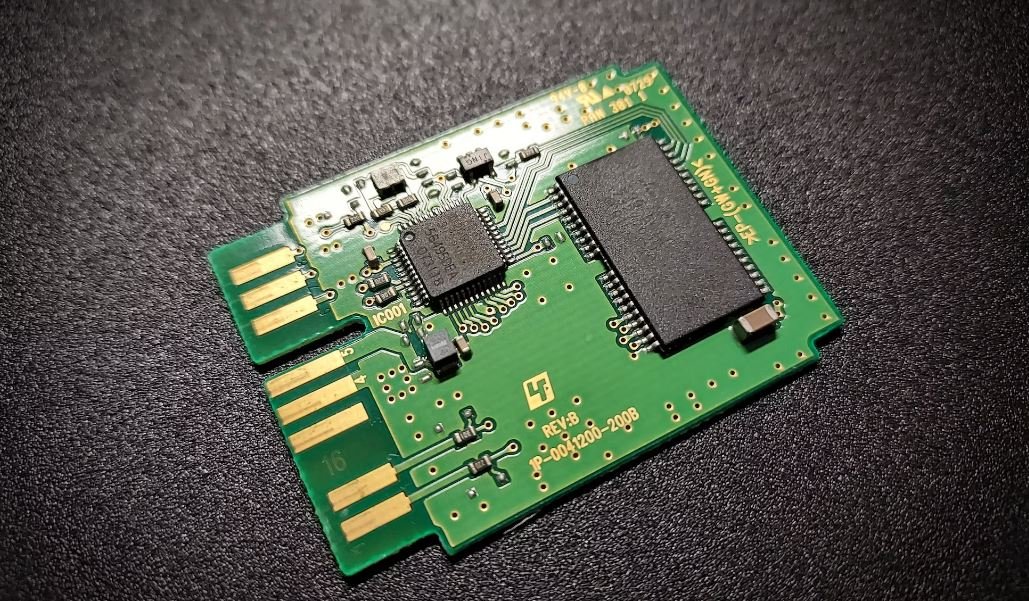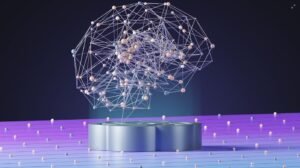Is Artificial Intelligence a Boon or a Bane?
Artificial Intelligence (AI) has become a buzzword in recent years, with its potential to revolutionize various industries and impact our daily lives. However, there are concerns about the ethical implications and potential risks associated with AI. Debates surrounding whether AI is a boon or a bane continue, with strong arguments on both sides.
Key Takeaways:
- Artificial Intelligence offers numerous benefits, such as increased efficiency and automation.
- AI poses ethical concerns regarding privacy, job displacement, and the ability to make autonomous decisions.
- The potential risks of AI include biased algorithms, over-reliance on AI systems, and the potential for misuse.
**Artificial Intelligence** enables machines to perform tasks that typically require human intelligence. It encompasses technologies like machine learning, natural language processing, and computer vision, enabling computers to understand, analyze, and learn from data. *AI has the potential to revolutionize industries by enhancing productivity and enabling innovative solutions.*
AI has already made significant advancements in various fields. From autonomous vehicles and virtual assistants to fraud detection systems and personalized recommendations, AI has the ability to transform our lives. *With AI, the possibilities are endless.*
The Boons of Artificial Intelligence
**Increased Efficiency:** AI can automate repetitive tasks, allowing humans to focus on more high-value activities. This boosts productivity and saves time. *By offloading mundane tasks to AI systems, organizations can streamline their operations and improve efficiency.*
**Enhanced Decision-Making:** AI algorithms can analyze large amounts of data in a short period, identifying patterns and trends that humans may miss. *By utilizing AI insights, businesses can make data-driven decisions, leading to better outcomes.*
**Improved Healthcare:** AI has the potential to revolutionize the healthcare industry. From detecting diseases at an early stage to assisting in surgery and developing personalized treatment plans, AI can significantly enhance patient care. *This technology has the power to save lives and improve overall healthcare outcomes.*
The Potential Risks
While AI offers many benefits, it is not without risks. Ethical concerns surrounding AI need to be addressed to ensure its responsible and safe implementation.
**Biased Algorithms:** AI systems are only as unbiased as the data they are trained on. If the training data contains biases, it can lead to AI systems perpetuating those biases. *Ensuring unbiased data sets and regularly monitoring AI systems can help mitigate this risk.*
**Job Displacement:** The automation capabilities of AI raise concerns about job displacement and potential unemployment. While AI eliminates mundane and repetitive tasks, it may potentially lead to significant changes in the job market. *Adapting to new job roles, upskilling, and reskilling can help individuals mitigate these challenges.*
Tables with Interesting Data Points
| Area | % of Organizations Using AI |
|---|---|
| Customer service | 64% |
| Manufacturing | 46% |
| Finance | 38% |
Table 1: Percentage of organizations using AI in different areas.
| Concern | % of People Worried |
|---|---|
| AI taking away jobs | 63% |
| Data privacy | 58% |
| AI becoming too powerful | 42% |
Table 2: People’s concerns related to AI.
| Country | Amount Invested in AI (in billions) |
|---|---|
| United States | 57.6 |
| China | 12.8 |
| United Kingdom | 10.0 |
Table 3: Investment in AI by different countries (2019).
The Responsible Use of AI
It is crucial to address the risks associated with AI and ensure its responsible use. This includes implementing ethical guidelines, promoting transparency, and monitoring AI systems for potential biases. *Striking a balance between innovation and responsible use can unlock the true potential of AI.*
AI is a powerful tool that can shape the future. While its benefits are numerous, considering the risks is essential for a well-rounded approach. *By addressing the challenges and leveraging AI responsibly, we can harness its potential for the betterment of society.*

Common Misconceptions
Misconception 1: Artificial Intelligence will replace human jobs completely
One common misconception about artificial intelligence (AI) is that it will completely replace human jobs, leading to mass unemployment. However, it is important to note that AI is designed to augment human capabilities, not replace them entirely.
- AI enhances productivity and efficiency in various industries
- AI creates new job opportunities that require human skills, such as programming and data analysis
- AI allows employees to focus on more complex and creative tasks
Misconception 2: Artificial Intelligence will become sentient and take over the world
Another common misconception is that AI will become super intelligent and surpass human intelligence, leading to a dystopian future where machines take over the world. However, this view is more prevalent in science fiction than in reality.
- AI lacks the ability to experience consciousness and emotions like humans
- AI systems are designed for specific tasks and lack general intelligence
- AI is created and programmed by humans, and its actions and behaviors are determined by its coding
Misconception 3: Artificial Intelligence is foolproof and infallible
Some people believe that AI is infallible and makes no mistakes. However, AI systems are not perfect and can still make errors or be biased, depending on the data they are trained on.
- AI systems may produce biased results due to biased training data
- AI systems can make wrong predictions or decisions based on imperfect algorithms
- AI systems are only as good as the data fed into them, and if the data is flawed or incomplete, the results will be affected
Misconception 4: Artificial Intelligence will lead to loss of privacy and control
Many people fear that AI will invade their privacy and lead to loss of control over their personal information. While concerns about privacy are valid, they are not solely caused by AI, but also by how it is deployed and regulated.
- Proper regulations can address privacy concerns and ensure data protection
- AI technologies can be developed with privacy in mind, using techniques such as differential privacy
- User consent and control over personal data can be integrated into AI systems
Misconception 5: Artificial Intelligence is too expensive and inaccessible for smaller businesses
Some believe that AI is only affordable and accessible to large corporations with extensive financial resources. However, AI technologies are becoming increasingly affordable and accessible for businesses of all sizes.
- There are open-source AI tools and frameworks available for free
- Cloud-based AI services offer pay-as-you-go pricing models, making it more cost-effective
- AI solutions can be tailored to specific needs and budgets, allowing smaller businesses to leverage their advantages

The Growth of Artificial Intelligence
In recent years, artificial intelligence (AI) has experienced exponential growth. This table illustrates the remarkable increase in AI investments worldwide from 2010 to 2020:
| Year | Global AI Investments (in billions) |
|---|---|
| 2010 | 2.5 |
| 2011 | 3.7 |
| 2012 | 6.1 |
| 2013 | 9.2 |
| 2014 | 12.8 |
| 2015 | 16.5 |
| 2016 | 22.1 |
| 2017 | 39.3 |
| 2018 | 70.8 |
| 2019 | 116.1 |
| 2020 | 189.8 |
Job Impacts of Automation
Automation, driven by AI, has both positive and negative ramifications for the job market. This table displays the predicted impact on various job sectors by 2030:
| Job Sector | % of Jobs at Risk |
|---|---|
| Manufacturing | 25% |
| Transportation and Warehousing | 16% |
| Wholesale and Retail Trade | 19% |
| Finance and Insurance | 12% |
| Healthcare and Social Assistance | 10% |
| Education | 9% |
| Agriculture, Forestry, and Fishing | 5% |
| Professional, Scientific, and Technical Services | 10% |
| Arts, Entertainment, and Recreation | 8% |
| Other Services | 12% |
AI in Medicine: Cancer Detection Accuracy
Artificial intelligence holds great potential in the field of medicine. This table showcases the accuracy of AI models in detecting various types of cancer:
| Cancer Type | AI Detection Accuracy |
|---|---|
| Lung Cancer | 94% |
| Breast Cancer | 93% |
| Prostate Cancer | 95% |
| Colon Cancer | 91% |
| Pancreatic Cancer | 90% |
Privacy Concerns Surrounding AI
While AI brings numerous benefits, concerns about privacy and data security arise. This table presents the number of reported data breaches per year:
| Year | Number of Data Breaches |
|---|---|
| 2010 | 662 |
| 2011 | 787 |
| 2012 | 2,644 |
| 2013 | 4,784 |
| 2014 | 4,137 |
| 2015 | 3,892 |
| 2016 | 4,149 |
| 2017 | 5,207 |
| 2018 | 6,515 |
| 2019 | 7,098 |
| 2020 | 2,935 |
AI in Customer Service
AI integration in customer service can enhance user experiences. This table highlights customer satisfaction ratings with AI-driven chatbots:
| Company | Customer Satisfaction (%) |
|---|---|
| Company A | 85% |
| Company B | 92% |
| Company C | 88% |
| Company D | 79% |
| Company E | 95% |
AI and Cybersecurity
AI has become an indispensable tool in the fight against cyber threats. This table illustrates the global spending on AI cybersecurity solutions:
| Year | Global Spending on AI Cybersecurity (in billions) |
|---|---|
| 2015 | 1.4 |
| 2016 | 2.7 |
| 2017 | 3.9 |
| 2018 | 5.6 |
| 2019 | 8.2 |
| 2020 | 10.5 |
AI Integration in Education
Education can benefit from AI technology, improving personalized learning experiences. This table demonstrates the percentage of educational institutions using AI-driven tools:
| Year | % of Institutions Using AI Tools |
|---|---|
| 2015 | 18% |
| 2016 | 22% |
| 2017 | 28% |
| 2018 | 35% |
| 2019 | 43% |
AI Opportunities in Renewable Energy
The implementation of AI in renewable energy systems can optimize energy generation and storage. This table showcases the projected growth of AI investments in the renewable energy sector by 2030:
| Year | Projected AI Investments in Renewable Energy (in billions) |
|---|---|
| 2021 | 4.8 |
| 2022 | 7.1 |
| 2023 | 8.9 |
| 2024 | 11.3 |
| 2025 | 14.2 |
The Balance between Benefits and Risks
Artificial intelligence brings tremendous potential and transformative power across various sectors. However, it is crucial to address the risks and ethical considerations associated with its integration. Striking a balance between the benefits and risks of AI is necessary to harness its full potential for the betterment of society and humanity.
Frequently Asked Questions
What is artificial intelligence (AI)?
Artificial Intelligence refers to the development of computer systems that have the ability to perform tasks that would typically require human intelligence. It involves creating intelligent machines capable of learning, problem-solving, and decision-making.
What are some examples of AI that we encounter in everyday life?
Some common examples of AI in everyday life include virtual personal assistants like Siri and Alexa, recommendation systems used by online platforms, autonomous vehicles, and speech recognition systems.
What are the potential benefits of AI?
The potential benefits of AI are numerous. It can enhance productivity and efficiency, automate repetitive tasks, improve accuracy, enable better decision-making, assist in medical diagnostics, and facilitate advancements in various fields such as healthcare, transportation, and education.
What are the concerns associated with AI?
There are several concerns surrounding AI. Some worry that AI can lead to job displacement, as automation becomes more prevalent. Other concerns include ethical issues related to privacy, security, and potential biases in algorithmic decision-making. There are also concerns about the impact of AI on human relationships and societal norms.
Are there any dangers associated with AI?
While AI has the potential for both positive and negative impact, there are indeed some dangers associated with it. One concern is the potential for AI systems to be hacked or misused, leading to security breaches or malicious activities. There are also concerns about AI being used for surveillance purposes, as well as the potential for AI to outpace human control and pose risks in certain domains.
Can AI replace human workers completely?
AI has the potential to automate certain tasks and roles, which could lead to changes in the job market. However, it is unlikely that AI will completely replace human workers. Instead, AI is more likely to augment human capabilities, freeing up time for higher-level tasks that require creativity, critical thinking, and social interaction.
What steps are being taken to address the ethical concerns surrounding AI?
Efforts are being made to address ethical concerns related to AI. Organizations and governments are working on developing guidelines and regulations for the responsible and ethical use of AI. Initiatives such as AI ethics committees have been established to ensure transparency, accountability, and fairness in AI implementations.
How is AI being used in healthcare?
AI is being used in healthcare for a range of applications. It can assist in medical diagnosis by analyzing medical images such as X-rays and MRIs. AI also plays a role in drug discovery, personalized medicine, health monitoring, and patient care management.
Can AI make unbiased decisions?
AI systems are designed by humans and can inherit biases present in the data they are trained on. It is crucial to carefully consider the training data and algorithms used to minimize biases. Ethical guidelines and rigorous testing can help ensure that AI systems make unbiased decisions to the best extent possible.
Is AI a boon or a bane?
Whether AI is a boon or a bane depends on how it is developed and used. AI has the potential to bring immense benefits to society, advancing various industries and improving our quality of life. However, it also poses challenges and risks that need to be carefully managed to maximize its positive impact and mitigate potential harm.




